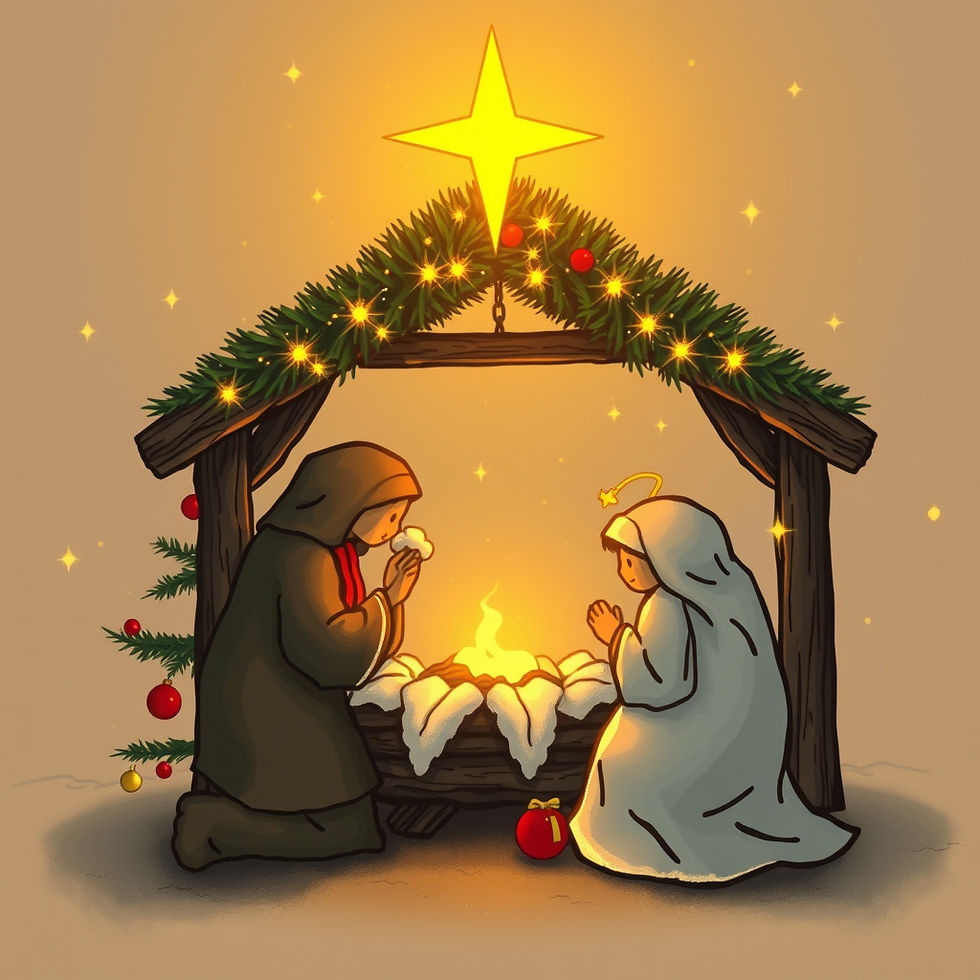What We Want Is Often Not What We Need
- Eldon Peterson
- Oct 16, 2014
- 3 min read
When our daughter moved to Alaska, we looked for someone to work with her horse. A teen from our church took him for the summer, and as winter approached, she brought him back. At their place, he was fed strictly hay because they did not have any pasture to graze the horse on.
When he returned home, he had a glorious green pasture waiting for him. There was only one problem; he wouldn’t be allowed to eat what he so desperately longed for. A horse needs to be gradually transitioned from hay to the pasture otherwise they can easily founder. The horse is unable to recognize the harm they are doing to themselves for all they can think about is the pleasure that comes from munching on that lush green grass!
When we think about it, we have a lot in common with horses – we too can find ourselves gorging on the very things that will make us lame and possibly even destroy us. The story of the prodigal son is an example of this.
The story tells about a young man who desperately wanted to get out of his father’s house. He was a man and could make his own decisions! He decides to go to his father and demand his inheritance. As Jesus tells the story, with each step we see the son going further down the path leading to his own destruction. He tells his father, “‘I want my share of your estate now, instead of waiting until you die!” (Luke 15:12)
Jesus says the father does and that things go from bad to worse for the son. The Living Bible describes his journey this way, “A few days later this younger son packed all his belongings and took a trip to a distant land, and there wasted all his money on parties and prostitutes. About the time his money was gone a great famine swept over the land, and he began to starve. He persuaded a local farmer to hire him to feed his pigs. The boy became so hungry that even the pods he was feeding the swine looked good to him. And no one gave him anything.” (Luke 15:13-15)
The question that we might ask, considering the previous illustration, is why did the son leave? Why would the boy leave the love of his father’s home and pursue things that were clearly destructive. It is the grass is greener complex is it not?
The problem boils down to our desire. We desire what we believe to be for our good, for our pleasure, and we can see nothing else. The prodigal was tired of waiting for his father to die so he so that he could start enjoying life, spending it on “parties and prostitutes” However, Solomon reminds us of how empty the pursuit of pleasure is. In Ecclesiastes 2:10 he says, “I denied myself nothing my eyes desired; I refused my heart no pleasure.” Nevertheless, as we do this we may find it not only unfulfilling but in the end, we too may be eating after the pigs.
Jesus goes on to say that, “When he came to his senses, he said, ‘How many of my father’s hired men have food to spare, and here I am starving to death! I will set out and go back to my father and say to him: Father, I have sinned against heaven and against you.” (15:17-18) With this the prodigal returns home into his waiting father’s arms.
With what are we filling our cup? To what are we looking to bring us contentment? The praises of men? Accomplishments or the things of this world? Like the prodigal, these things may bring temporary pleasure, but when we place our hope in them we will discover the same thing that Solomon did, “But as I looked at everything I had worked so hard to accomplish, it was all so meaningless—like chasing the wind. There was nothing really worthwhile anywhere.” (Ecc. 2:11)
Where can real hope be found? Hope that will sustain us? Listen to Peter’s words, “In his great mercy he has given us new birth into a living hope through the resurrection of Jesus Christ from the dead, and into an inheritance that can never perish, spoil or fade—kept in heaven for you.” (1 Peter 1:3-4) Ecclesiastes tells us that wealth and pleasure are meaningless because they do not bring us lasting hope. The only hope that will satisfy is the living hope that comes through Jesus.




Comments